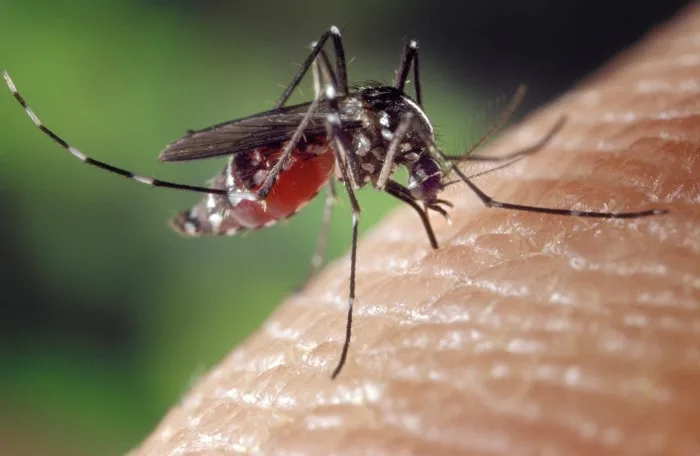
New study finds human activity promotes disease-spreading mosquitoes
Researchers hope the findings will provide better insight into the behaviours of different mosquito species and lead to more effective pest control.
Disease-spreading mosquitoes are more likely to turn up in areas impacted by human activity, according to a new study.
While the findings come from South African data, the results could have implications in Canada, where some mosquito species are known to transmit West Nile virus as well as Western, Eastern, and St. Louis Equine Encephalitis viruses.

File photo courtesy: The CDC.
MOSQUITOES GO WHERE THE PEOPLE ARE
The paper, conducted by a team at Oregon State University, found disease-spreading mosquitoes are nearly three times more likely to occupy areas impacted by human activity, including areas with heavy pesticide use, when compared to areas less disturbed by humans.
Samples taken from inside South Africa's Kruger National Park and the densely human-populated areas outside of the park showed a significant difference in the abundance and diversity of mosquito species, with mosquito species known to spread Zika and malaria more common outside of the park.
Researchers hope the findings will provide better insight into the behaviours of different mosquito species and lead to more effective pest control.
"People care a lot about what environment a lion needs to succeed in; we've researched that extensively. But people don't do that with mosquitoes. We don't understand them as a group of species and how their ecology differs between species," study co-author Dr. Brianna Beechler, a disease ecologist and assistant professor of research at Oregon State University's Carlson College of Veterinary Medicine, said in a statement.
"All we can do is reduce mosquitoes overall, but what may be more effective is to reduce certain species by modifying their habitats."
A 'DOMINO EFFECT'
Disease-spreading mosquitoes flourish in human-impacted areas due to a 'domino effect,' according to the researchers.
Pesticide use, for example, migrates into ponds and other small bodies of water, which are prime breeding spots for mosquitoes. If pesticides are concentrated enough, they will kill all the fish and other natural mosquito predators in those spaces.
More mosquitoes hatch because there are fewer predators to eat them in the larvae stage.
"It seems to suggest that disease-carrying mosquito species certainly did better in human-altered environments," Beechler said but added more study is needed to understand the ecological requirements of different mosquito species.
"With climate change, mosquito distributions are likely to change, and disease distributions are likely to change," Beechler said. "So it'd be nice to know how to target those species before that happens."
AVOIDING MOSQUITOES
Mosquito season can extend into September in Canada if the weather conditions allow for it.
You can reduce your risk of coming into contact with mosquitoes by:
Wearing light-coloured clothing, especially when outdoors.
Covering up with long sleeves and pants, particularly at dusk and at dawn.
Using an insect repellant.
And here are some other tricks, courtesy of The Weather Network's very own Nathan Coleman:
Keep your lawn well-groomed and tidy.
Use basil, which acts as a natural mosquito repellent.
You'll want to do your best to eliminate any standing water, but if you’ve got a problem area, throw on some coffee grinds. Standing water is a classic breeding ground. The coffee grinds will make the water less clear, and if they go in for a landing, they may not make it out.
Have a fan? Turn it on outside. Mosquitoes are weak flyers and won’t be able to stand up to the breeze.











